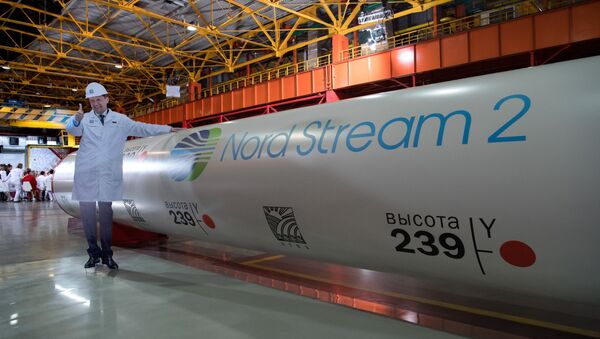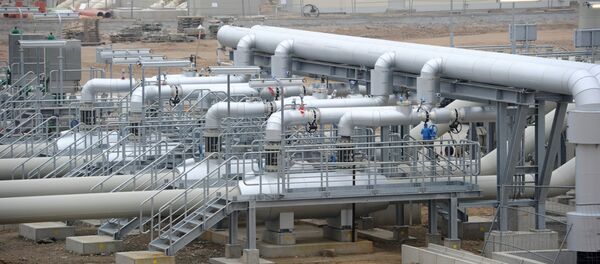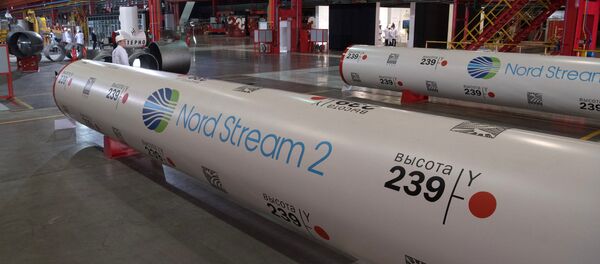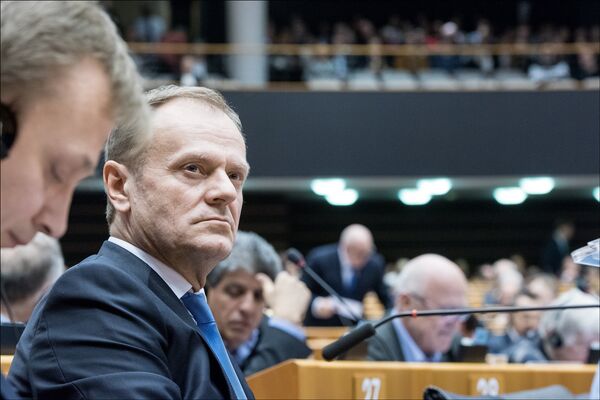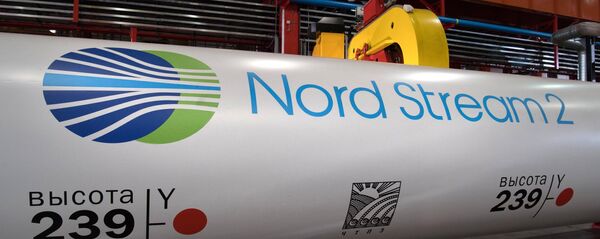While the project has gained support from a number of EU countries, Poland, Estonia and Lithuania continue to oppose the gas pipeline citing energy security concerns.
Needless to say, Ukraine doesn't support the Nord Stream 2 project either.
"Ukraine fears that Nord Stream 2 will deprive the country of virtually all its revenues from the Russian gas currently passing through Ukraine to the EU, because [Russia] will be able to transit its gas via Nord Stream 2 directly from Russia to Germany," Ussing noted.
Speaking at the recent Brussels summit Danish Foreign Minister Anders Samuelsen underscored that the decision on the Nord Stream 2 project should be taken at the EU level.
"This is not just a Danish-Russian issue. It is of great geopolitical importance. Therefore it cannot be right that a single [EU] member state makes such a decision on an individual basis," Samuelsen told his European counterparts Monday, as quoted by Ussing.
The Danish journalist added that Denmark's Energy Minister Lars Chr. Lilleholt shares a similar stance.
Speaking to Berlingske, Lilleholt explained that it would be 'natural' for Copenhagen to wait for the European Commission to assess the project in the first place. He added that Denmark won't block Nord Stream 2 unless the EU has made such a decision.
"Nord Stream 2 is basically a commercial project. If Denmark receives an application, it will deal with it in accordance with Denmark's international obligations," Lilleholt stressed.
While the European Commission remains silent on the matter, Ussing remarked that regardless of the fact that President of the European Council Donald Tusk has repeatedly slammed the Russia-led initiative Brussels cannot block it for legal reasons.
"It should be noted that in accordance with the EC's preliminary assessment the project could not be blocked due to legal matters. This is because the Nord Stream 2 is a pipeline delivering gas to the EU, but not within the EU. Therefore, the pipeline cannot be immediately included in the European energy legislation, which says that a pipeline should not be owned by the same company that delivers gas through the pipeline," the Danish journalist wrote.
However, it seems that major European states are interested in strengthening energy cooperation with Russia, despite the EU's sanctions policy.
According to Ussing, Germany, France and the Netherlands view Nord Stream 2 as a purely commercial and very lucrative project.
Speaking to Sputnik in early January, Georg Oppermann, spokesperson for the German energy company Uniper, highlighted that the construction of the Nord Stream 2 pipeline will work in favor of the European gas market.
"We actually believe that Nord Stream 2 will benefit the gas market since we see that European domestic gas sources — including those in the UK and North Sea — will diminish over time and demand in Europe will increase," Oppermann told Sputnik.
"One fact remains certain: natural gas is and will remain a central pillar of the European energy mix. Natural gas is an ideal energy source being secure, affordable and sustainable and promoting its role ensuring Europe energy supply security [is] key… Together with efforts to enhance [European] domestic production and endorse new energy sources it is crucial to promote a mutually beneficial relationship with Russia," Leitner said at the European Gas Conference which was held in Vienna in late January.
The Nord Stream 2 pipeline aims to deliver 55 billion cubic meters of Russian natural gas per year to the European Union across the Baltic Sea to Germany, bypassing Ukraine. The launch of the pipeline is planned for 2018.
